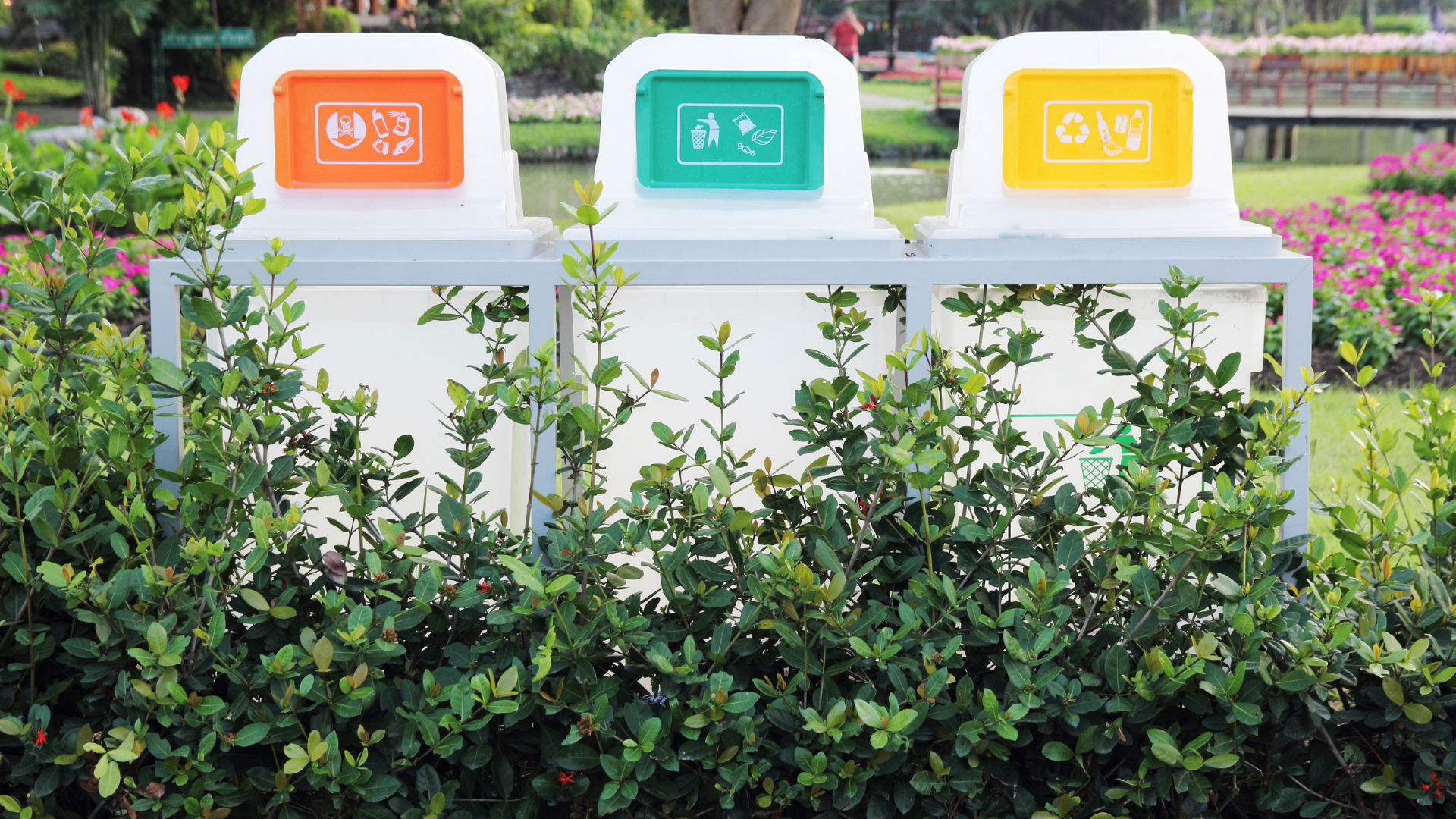

The Internet of Things (IoT) is transforming various industries, and waste management is no exception. By integrating smart sensors and connected devices, municipalities can enhance efficiency, reduce costs, and improve environmental sustainability. Implementing IoT solutions in waste disposal systems leads to optimized collection routes, timely pickups, and better resource allocation.
Smart bins equipped with sensors can monitor fill levels in real time, notifying waste management teams when to collect. This data-driven approach minimizes unnecessary trips, leading to reduced fuel consumption and lower operational costs. Additionally, IoT can facilitate better recycling practices by providing insights into the types and volumes of waste generated.
As cities continue to grow, effective waste management becomes crucial in maintaining urban infrastructure and public health. Embracing IoT not only streamlines processes but also promotes community engagement by fostering responsible waste disposal habits. Through these advancements, cities can pave the way for greener and smarter urban environments.
Core Advantages Of IoT In Waste Disposal Systems
The integration of IoT technology into waste disposal systems offers significant advantages. Key benefits include enhanced operational efficiency, real-time data collection, and automation through smart bins.
Enhanced Operational Efficiency
IoT enhances operational efficiency by streamlining waste management processes. Smart technology provides waste managers with insights into collection routes, reducing fuel consumption and saving time.
IoT sensors installed in waste bins monitor fill levels, enabling collection only when necessary. This targeted approach minimizes unnecessary trips and reduces labor costs.
Furthermore, data analytics can reveal patterns in waste generation, allowing for optimized scheduling of pickups and more efficient resource allocation. A proactive strategy leads to improved service delivery in urban and rural settings.
Real-Time Data Collection and Monitoring
Real-time data collection transforms the monitoring of waste disposal systems. IoT sensors continuously gather information on waste metrics, such as fill levels and contamination rates.
This data enables waste management authorities to respond promptly to issues, like overflowing bins or contamination in recycling streams. The immediacy of this information supports informed decision-making.
Real-time monitoring also aids in compliance with regulations and sustainability goals. By having access to accurate data, municipalities can better manage resources and reduce environmental impact.
Automation and Smart Bins
Automation through smart bins introduces a new level of efficiency in waste disposal. These bins are equipped with sensors and connectivity features that automate various processes, such as self-emptying when full.
Smart bins can communicate with waste management systems, scheduling collections based on actual needs rather than estimates. This leads to a drastic reduction in labor costs and improved service frequency.
Additionally, smart technology in these bins can enhance the user experience. Features like foot pedals for opening lids or sensors for identifying waste types promote hygiene and encourage proper waste disposal practices.
Sustainability And Environmental Impact
The integration of IoT in waste disposal systems significantly enhances sustainability and minimizes environmental impact. By optimizing waste management processes, these technologies contribute to reducing greenhouse gas emissions and promoting recycling efforts.
Reducing Carbon Footprint and Greenhouse Gas Emissions
IoT technology helps monitor waste collection and processing in real-time. This data allows for more efficient route planning for waste collection vehicles, reducing fuel consumption and travel distances.
By optimizing these logistics, organizations can significantly cut down on carbon emissions associated with waste management. Additionally, smart sensors can analyze the composition of waste, helping to divert organic materials from landfills, which release methane, a potent greenhouse gas.
They facilitate effective waste management strategies that align with environmental sustainability goals, addressing critical issues related to urban waste generation.
Supporting Recycling and Resource Conservation
IoT systems play a crucial role in enhancing recycling practices. Smart recycling bins equipped with sensors can detect when they are full and indicate the optimal time for collection. This proactive monitoring reduces overflow and contamination of recyclable materials.
Moreover, real-time data helps municipalities understand waste composition trends, enabling targeted recycling initiatives. By promoting the circular economy, IoT encourages individuals and organizations to conserve natural resources and improve resource management.
Through efficient recycling and reduced waste, communities can significantly lower the demand for new materials and mitigate environmental issues associated with plastic and other waste.
Data Analytics And Smart Technology Integration
The incorporation of data analytics and smart technology into waste disposal systems presents significant benefits. By leveraging advancements in artificial intelligence and integrating with smart city infrastructures, waste management can become more efficient and responsive.
Leveraging Artificial Intelligence and Machine Learning
Artificial intelligence (AI) and machine learning (ML) enhance waste management by enabling predictive analytics. These technologies can analyze vast datasets to forecast waste generation patterns based on historical trends. For example, AI algorithms can evaluate data from sensors embedded in waste bins to determine fill levels, leading to optimized collection routes.
Machine learning models can also improve sorting mechanisms. By using computer vision, these models recognize different types of waste as they are disposed of, allowing for better segregation. This process not only increases recycling rates but also minimizes contamination in recycling streams.
Data-Driven Waste Segregation and Sorting
Data analytics plays a pivotal role in enhancing waste segregation and sorting processes. By utilizing real-time data, waste management systems can streamline operations. Sensors and IoT devices collect information such as weight, volume, and composition of waste.
Real-time analytics allows collection teams to adapt to changing conditions. For instance, if a particular area shows increased waste generation, teams can adjust their schedules accordingly. This data-driven approach ultimately leads to more effective recycling programs and reduced landfill use.
Integration with Smart City Initiatives
The integration of waste management systems with smart city initiatives transforms urban infrastructure. Waste disposal solutions can communicate with other city services, such as traffic management and environmental monitoring.
ICT (Information and Communications Technology) infrastructure supports this integration by enabling seamless data sharing. Mobile applications allow residents to participate actively by reporting issues or receiving updates on waste collection.
Ultimately, aligning waste management with smart city strategies optimizes resource allocation and enhances sustainability, making urban environments more livable.
Broader Applications And Cost Benefits
The Internet of Things (IoT) enhances waste disposal systems across multiple sectors while delivering significant cost advantages. Its applications extend into industries such as healthcare and agriculture, boosting efficiency and recycling efforts.
Application in Sectors Like Healthcare, Agriculture, and Ports
In healthcare, IoT devices monitor waste generation, ensuring proper disposal of medical refuse. Smart bins can notify staff when they are full, reducing overflow and health risks.
In agriculture, IoT helps manage organic waste disposal, promoting composting and reducing landfill contributions. This not only improves soil health but also supports sustainable farming practices.
Ports benefit from IoT-enabled waste management systems, enhancing logistics and minimizing the environmental impact of waste. By tracking waste types and volumes, ports can optimize recycling initiatives and promote responsible disposal methods.
Cost Reduction and Addressing Inefficiencies
IoT technology significantly reduces operational costs in waste management. Sensors can streamline collection routes, minimizing fuel consumption and labor costs.
For instance, smart bins provide real-time data on fill levels, allowing waste collectors to plan efficient routes. This targeted collection approach minimizes unnecessary trips, reducing wear on roads and decreasing tire replacement costs.
Additionally, IoT facilitates recycling initiatives by tracking contamination levels in recyclable materials. By addressing inefficiencies, organizations can increase recycling rates, ultimately lowering disposal fees and contributing to a circular economy.
